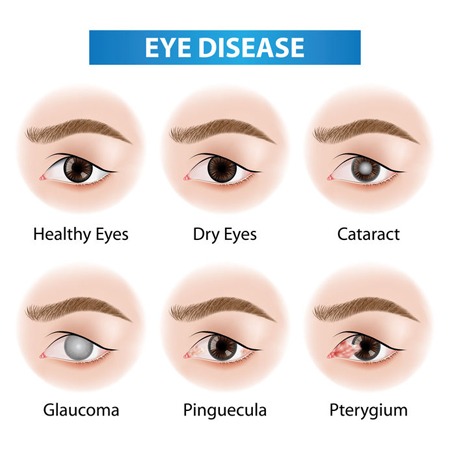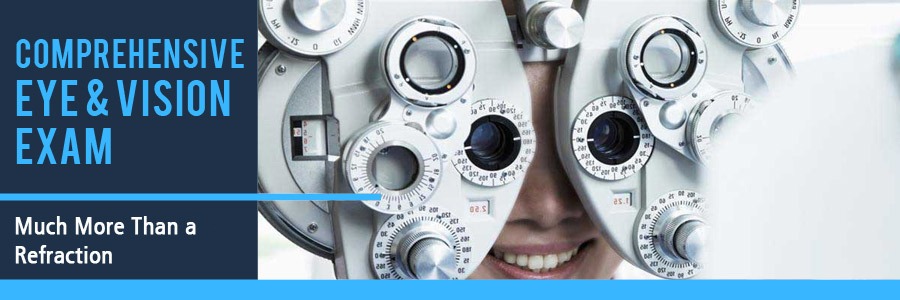
Personalized Eyewear Consultation by Appointment Only (215) 443-7706
- Home
- About
- Products
- Services
- Lens Lab
- Vision Care
- Newsletter
- Contact Us
Menu- Home
- About
- » Doug Wohl
- » Awards
- » Reviews
- Products
- » Bifocals
- » Computer Glasses
- » » Computer Vision Syndrome - Digital Eye Strain
- » Contact Lenses
- » » Are Contacts Right For You
- » » Guidelines for Contacts Wear and Care
- » » Instructions for Soft Contacts
- » Eyeglass Frames
- » » Frame Guide - Frame Shape and Face Shape
- » » Frame Materials
- » » Eyewear Maintenance
- » » Makeup Tips When Wearing Glasses
- » » Wiley X Eyewear Frames
- » Children Eyeglasses
- » » Eyewear for Babies and Young Children 0-5 Years Old
- » » Kids Corner
- » » 10 Tips for Buying Glasses for Children
- » Occupational Eyeglasses
- » Prescription Lenses
- » » Lens Coatings and Tints
- » » » Anti Reflective Coating
- » » Replacement Lens Options
- » Progressives
- » Readers
- » Safety Glasses
- » » Eye Injuries that Could be Prevented with Safety Glasses
- » » Prescription Safety Eye Glass Feature Guide
- » Single Vision Eyeglasses
- » Sports Eyewear
- » Sunglasses
- » » UV Eye Safety
- Services
- » Eye and Vision Exam
- » » Eye and Vision Problems
- » » Glaucoma Test
- » » Vision Refraction
- » Contact Lens Exam and Fitting
- » Eyeglass Repair
- Lens Lab
- Vision Care
- » Cornea
- » Detached Retina
- » Diabetic Retinopathy
- » Dry Eyes
- » Eye and Vision Conditions
- » Fun Eye Facts
- » Eye Function and Parts Explained
- » FAQ
- » Macular Degeneration
- » Makeup Causing Eye Damage
- » Medication Side Effects to Vision
- » Optic Nerve Damage
- » Optical Terms and Definitions
- » Red Eye
- » Retina Damage
- Newsletter
- » Blue Light Blocker Glasses
- » Buying Glasses Online
- » Covid-19 Safety Practices
- Contact Us
- Home Vision Care Eye and Vision Exam
What is a Comprehensive Eye Exam
A comprehensive eye health exam consists of:
- Visual acuity is checked using the eye chart to evaluate vision
- Vision refraction is performed to determine the best eye glass prescription. Refraction finds common vision related conditions (refractive errors) including myopia (nearsightedness), hyperopia (farsightedness), astigmatism. Near vision testing to determine need for bifocals or progressive lenses.
- Review of your family health history / eye health history
- Other testing may include color blindness, eye muscle movement, pupil reaction to light, peripheral and side vision
- Intraocular pressure testing and evaluation of optic nerve for signs of glaucoma damage
- Examination of the inside of the eye, often performed after dilating the pupil with medication eye drops - expect to have your eyes dilated. Almost always, your eyes will be dilated in a thorough, comprehensive eye exam. This means you will probably experience increased glare, some discomfort, and blurred vision. Bring your favorite sunglasses for comfort.
- Examination for other eye problems, including cataracts, macular degeneration, diabetic retinopathy, dry eye
Eye exams catch diseases such as high blood pressure, high cholesterol, even multiple sclerosis. The eye exam may also tell you if you have an underlying issue with vision not correctable by glasses, such as glaucoma, macular degeneration, or cataracts. Many eye diseases have no early symptoms. They may be painless, and you may see no change in your vision until the disease has become quite advanced. Many patients have found that they are nearsighted or farsighted and didn’t know it because it’s a slow deterioration.
After your eye exam, we will know your prescription and be able to recommend the type of lenses that you require. Most people need single vision eyeglasses to correct nearsightedness or farsightedness or a multi-focal lens (i.e. bifocals, trifocal and progressive lenses) when there is more than one vision problem to correct.
We take vision insurance and accept eye insurance from many companies, adding yet another way for our patients to save money on your exams and eye wear.

Blurry Vision Can Be Serious
Eye and vision exams on patients of all ages (pediatric, adolescent, adult, and geriatric). Getting your eyes examined from a qualified optometrist or ophthalmologist — an eye doctor — is the critical first step to getting any kind of prescription eyewear. During a comprehensive eye exam, your eye doctor will not only determine your prescription for eyeglasses or contact lenses, but will also check your eyes for common eye diseases, assess how your eyes work together as a team and evaluate your eyes as an indicator of your overall health.
If it happens that your doctor recommends you to visit more often, feel free to ask them what they are concerned about. Our goal is to preserve your eye health and wellness.
Adults Between Ages 18 and 60
Adults who are between the ages of 18 and 60, and are considered to be completely risk-free from any vision problems should have eye exams every couple of years or so. However, if you are wearing contact lens or glasses, it is recommended that you visit your eye doctor every year in order to renew your prescription and have your vision screened for any changes.
Your eye completes its growth when you are in the early 20s, and contact lenses and glasses provide excellent vision correction during this time. Although many at this age experience healthy vision, there are some conditions that can still affect your overall eye health. The possibility of being diagnosed with an eye condition, such as presbyopia, becomes more prevalent, while overall eye health starts to face new challenges between the ages of 40 to 59.
Age-related conditions, such as cataracts, may be treated with the right care to allow you to continue living a life of good vision. As you get older, you’re more likely to get certain eye and vision problems.
People who are generally considered to be at risk include people who are suffering from illnesses such as diabetes, hypertension, or people who have a family history of any kind of eye diseases. People who have recently been through an eye surgery or who take medications with potential side effects to vision can also be considered to be part of the group of people at risk.
Seniors Over 60 Years Old? See Optometrist Annually
Once you reach or pass the age of 60, you have to start visiting your optometrist at least annually - once every year. As we get older, our eyes become more vulnerable to different ocular diseases, and our vision can rapidly deteriorate if not supervised by a professional.
According to some research, more than 50% of the American citizens over the age of 65 have some degree of cataracts clouding to their ocular lens, and finding this as early as you can means that you won’t suffer from vision loss due to your cataracts. Other diseases such as glaucoma and macular degeneration become more common as you get older, and also require early detection in order to prevent complete loss of vision.
As you can see, having a comprehensive eye exam is something that you should be doing your entire life. If you are a parent, make sure that your children have healthy and strong eyes so that they will have a much easier and happier life, and once they grow up they will have the habit of visiting optometrists on a regular basis.

- Are street signs becoming blurrier for you when you are out driving? Do you need to hold your phone further away when you are reading a text? Are you squinting while watching the television? When was the last time you had a comprehensive eye exam?
About Wohl Optics Vision Care
Proper eyewear prescription AND fit are vital for your best vision. Fit is something that you will never get right with an online optical business. Veteran owned and operated - best in Bucks County Optical eye care shop.
How could your vision be better? What situations do you feel give you trouble when wearing eyeglasses? That is why we are here.
Optical Services, Products and more
Exclusive Discounts
Military, Veterans, First Responders, Police, Firefighters, Ambulance all receive exclusive discounts (not combined with insurance or other discounts).
We accept most major Vision Insurance Plans.
(215) 443-7706 Phone
(215) 443-8795 FaxWohl Optics
550 Street Rd.
Warminster, PA 18974Veteran Helping Veterans - Local Bucks County, PA Independent Optician

Copyright © 2016-2022
All Rights ReservedCredit Cards Accepted

Private Consultations for your Family: Flexible hours at your convenience by appointment ONLY
Wohl Optics Regular Schedule:
Monday 10:00AM - 5:00PM Tuesday 10:00AM - 4:00PM Wednesday 10:30AM - 6:00PM Thursday 10:30AM - 7:30PM Friday 10:00AM - 6:00PM Saturday 10:00AM - 1:00PM We are offering personal appointments to everyone for the selection of eyeglasses and eyeglass adjustments. We will make every effort to accommodate your schedule. Let us know if you would like to meet at Wohl Optics outside of the above regular scheduled hours.
Service Areas
Bucks County, PA; Montgomery County, PA; Chester County, PA; Philadelphia, PA; Warminster, PA; Ivyland, PA; Warrington, PA;Furlong, PA; Warrington, PA; New Hope, PA; Southampton, PA; Bensalem, PA; Northampton, PA; Hatboro, PA; Willow Grove, PA; Huntingdon Valley, PA; Horsham, PA; Lansdale, PA; Montgomeryville, PA; Newtown, PA; Langhorne, PA; Lahaska, PA; Buckingham, PA; Yardley, PA; Chalfont, PA; Richboro, PA; Doylestown, PA; Glenside, PA; Ambler, PA; Fort Washington, PA; Churchville, PA; Norristown, PA; Washington Crossing, PA; Philadelphia, PA.
Wohl Optics 550 Street Rd. Warminster, PA 18974 (215) 443-7706 Privacy Policy HIPAA Sitemap
